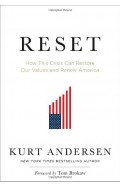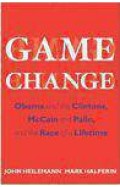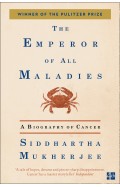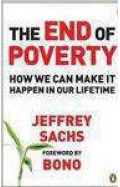- Home
- Non Fiction
- Politics & Current Affairs
- Cousins and Strangers: America, Britain, and Europe in a New Century
Cousins and Strangers: America, Britain, and Europe in a New Century
By: Chris Patten
-
Rs 1,800.00
- Rs 2,000.00
- 10%
You save Rs 200.00.
Due to constant currency fluctuation, prices are subject to change with or without notice.
We're offering a high discount on this book as it is slightly damaged
A frank and controversial assessment of the United States, Great Britain, and Europe, and the stakes for all three if the West breaks apart
Despite the efforts of President Woodrow Wilson, America washed its hands of Europe after the First World War. After the Second World War, it stayed involved, helping to preserve freedom in half of Europe, and creating an infrastructure of global governance that gave the world a remarkable half century of (for the most part) peace and prosperity.
In Cousins and Strangers, Chris Patten, one of Europe's most distinguished statesmen, scrutinizes the final years of the twentieth century and how the fall of the Berlin Wall in 1989 fundamentally changed the nature of this Western alliance. Today, the threat of terrorism, economic competition from Asia, and a seemingly unbridgeable cultural divide have strained the alliance to a moment of reckoning. Patten argues that America's status as the only superpower must be reined in, but he also warns Europe against too ardently challenging U.S. leadership. He questions whether Britain needs to choose between bolstering its "special relationship" with the United States and forging a greater role in a united Europe.
Drawing on more than three decades of experience in government and international diplomacy, Patten brilliantly investigates the three-way relationship among Britain, Europe, and America and how all three must adapt to cope with the economic and political challenges of the twenty-first century.
We're offering a high discount on this book as it is slightly damaged
A frank and controversial assessment of the United States, Great Britain, and Europe, and the stakes for all three if the West breaks apart
Despite the efforts of President Woodrow Wilson, America washed its hands of Europe after the First World War. After the Second World War, it stayed involved, helping to preserve freedom in half of Europe, and creating an infrastructure of global governance that gave the world a remarkable half century of (for the most part) peace and prosperity.
In Cousins and Strangers, Chris Patten, one of Europe's most distinguished statesmen, scrutinizes the final years of the twentieth century and how the fall of the Berlin Wall in 1989 fundamentally changed the nature of this Western alliance. Today, the threat of terrorism, economic competition from Asia, and a seemingly unbridgeable cultural divide have strained the alliance to a moment of reckoning. Patten argues that America's status as the only superpower must be reined in, but he also warns Europe against too ardently challenging U.S. leadership. He questions whether Britain needs to choose between bolstering its "special relationship" with the United States and forging a greater role in a united Europe.
Drawing on more than three decades of experience in government and international diplomacy, Patten brilliantly investigates the three-way relationship among Britain, Europe, and America and how all three must adapt to cope with the economic and political challenges of the twenty-first century.
Cousins and Strangers: America, Britain, and Europe in a New Century
By: Chris Patten
Rs 1,800.00 Rs 2,000.00 Ex Tax :Rs 1,800.00
Zubin Mehta: A Musical Journey (An Authorized Biography)
By: VOID - Bakhtiar K. Dadabhoy
Rs 472.50 Rs 1,050.00 Ex Tax :Rs 472.50
Reconciliation - Islam, Democracy, and the West
By: Benazir Bhutto
Rs 355.50 Rs 395.00 Ex Tax :Rs 355.50
Myths Illusions and Peace: Finding a New Direction for America in the Middle East
By: Dennis Ross
Rs 985.50 Rs 1,095.00 Ex Tax :Rs 985.50
The Origins of Political Order From Prehuman Times to the French RevolutioN
By: Francis Fukuyama
Rs 3,505.50 Rs 3,895.00 Ex Tax :Rs 3,505.50
Reset: How This Crisis Can Restore Our Values and Renew America
By: Kurt Andersen
Rs 450.00 Rs 500.00 Ex Tax :Rs 450.00
How To Win A Cosmic War God Globalization And The End Of War
By: Reza Aslan
Rs 625.50 Rs 695.00 Ex Tax :Rs 625.50
Game Change Obama And The Clintons McCain And Palin And The Race Of A Lifetime
By: John Heilemann
Rs 715.50 Rs 795.00 Ex Tax :Rs 715.50
Made to Stick: Why Some Ideas Take Hold and Others Come Unstuck
By: Chip Heath & Dan Heath
Rs 2,695.50 Rs 2,995.00 Ex Tax :Rs 2,695.50
Reconciliation - Islam, Democracy, and the West
By: Benazir Bhutto
Rs 355.50 Rs 395.00 Ex Tax :Rs 355.50
No recently viewed books available at the moment.
Zubin Mehta: A Musical Journey (An Authorized Biography)
By: VOID - Bakhtiar K. Dadabhoy
Rs 472.50 Rs 1,050.00 Ex Tax :Rs 472.50
Cousins and Strangers: America, Britain, and Europe in a New Century
By: Chris Patten
Rs 1,800.00 Rs 2,000.00 Ex Tax :Rs 1,800.00
Reconciliation - Islam, Democracy, and the West
By: Benazir Bhutto
Rs 355.50 Rs 395.00 Ex Tax :Rs 355.50












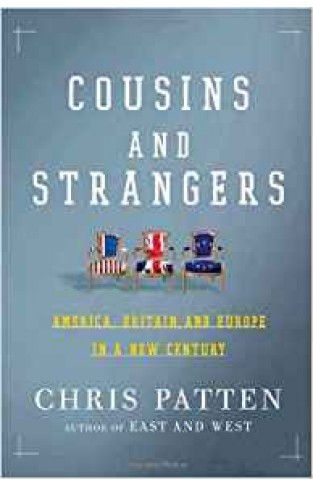
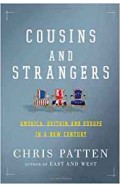
-120x187.jpg?q6)





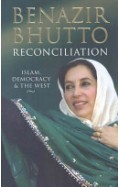

-120x187.jpg?q6)
